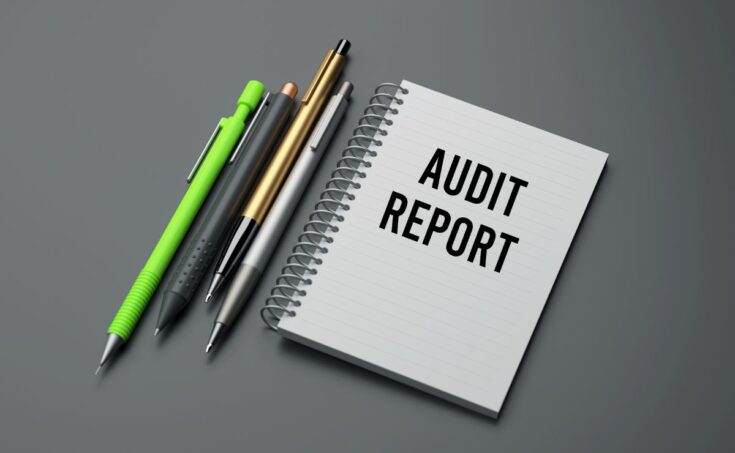An IRS audit can be difficult for any person or company. It is an examination in which the tax authority reviews the accounts and all the financial information of the companies or individuals subject to the audit. It is an investigation that seeks to obtain accurate information on possible non-compliance.
Through audits, the IRS aims to ensure that the investigated has complied with tax laws and that all related liabilities and taxes are kept correct. It is, therefore, the process before a possible sanction or acquittal in a State tax investigation.
Are there many IRS audits?
That is a question many Americans ask themselves. We often get information in the media about audits by the tax agency, usually of relevant individuals or certain business organizations.
The truth is that, over time, the IRS is doing fewer and fewer audits. That does not mean that they do not take place, but over the years, the volume of these operations has dropped significantly.
To give you an idea, approximately 30% fewer audits are performed annually today than there were a decade ago.
That is no coincidence. The fact of greater presence of Internet finance and the tax tools applied have had a great influence on this type of operation. Also, on the other hand, the resources allocated to the IRS for this type of operation have decreased. At the same time, the resources to pursue tax fraud on new technologies have increased: an example of this is the effort allocated to digital assets, etc.
In any case, auditing remains one of the most obvious fears for the finances of companies and individuals. That happens not because tax issues could be better managed but because it is an exhaustive, annoying process that can hinder the user’s day-to-day life with the company. Therefore, a very common question is how long it takes to cancel an audit of these characteristics.
As you will see, it is a flexible time due to many variables.

How does an IRS audit work?
The first thing you should know is that an IRS audit is not going to happen randomly. An IRS inspector will not suddenly knock on your door and come in to conduct the audit.
The process is usually initiated after detecting some irregularity or repeated data that does not correspond to what the tax agency expects and what you or your company will declare. It is true that, in some cases, the IRS has carried out random audit campaigns among a specific population, a sector, or a specific professional. But this is not the norm.
What is common is that you receive a letter from the tax service. This letter, which you will receive through the U.S. Postal Service, will set the basis for the audit.
The most common situation is that you can send the requested information through the mail. In this case, the IRS would ask you for the same documents and the form of mailing. From there, the different types of audits can be derived.
Types of IRS audits
Knowing the different types of audits is important since field audits seem the most common. And this is not entirely true. There are more mail audits than field audits. What happens is that field audits tend to be more impactful.
Let’s get to know the three most common types of audits. Remember that sometimes, these types of audits may be combined depending on the process evolution.
- IRS mail audit: this is probably the most common. The IRS requests specific information and supporting documentation. If the documentation is provided correctly, it is also the fastest audit.
- IRS field audit: in the collective imagination, this is the audit par excellence. It is the one in which the tax agents visit the domicile or the auditing business, or also the accountants’ offices. This audit reviews the documentation and all the data that the tax agency may request. That may include the review of all the finances of the company. It is usually recommended to have legal advice to prepare for this type of audit.
- IRS office audit is another increasingly common form of auditing in the United States. In this case, the auditee must go to the agency tax offices to meet with an agent and verify the requested documentation. Accountants or legal counsel may also be asked to be present, depending on the type of investigation. This can be a really quick audit model. When all the requested documentation is submitted, it can be processed in just a few days.
How long does an IRS audit take?
As we have seen, no exact time frame determines the duration of an IRS audit.
However, we know that these types of investigations usually occur within a maximum of two years after the tax return is filed. The IRS can audit further and go back three years, depending on the filing or due date.
But moreover, if there are errors that may indicate international tax fraud, searches can go back as far as six years. And, in case of criminal indications, the process can even go back in time to provide the necessary data in a criminal investigation.
As there is no specific period, we know that we have 90 days from the receipt of the communication of the audit, whatever its type. Subsequently, deadlines may be longer or shorter depending on the speed of our responses, the type of audit, and the date on which it is carried out. They can range from just a few days for an office audit to investigations that can last for months.

For years I have studied American finance regulations. All the information in this blog is sourced from official or contrasted sources from reliable sites.
Salesforce Certified SALES & SERVICE Cloud Consultant in February 2020, Salesforce Certified Administrator (ADM-201), and Master degree in “Business Analytics & Big Data Strategy” with more than 13 years of experience in IT consulting.
